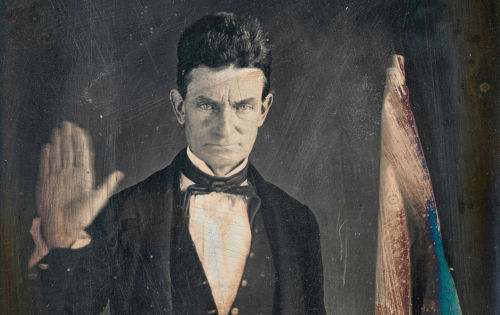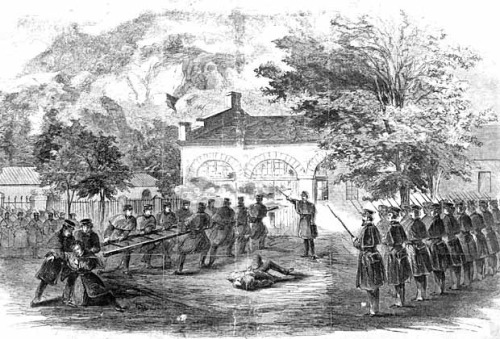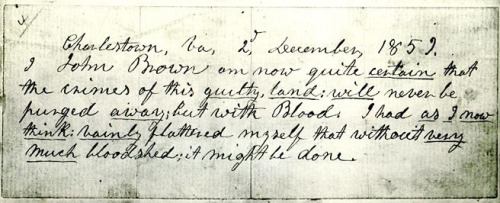todayinhistory:October 16th 1859: John Brown’s raidOn this day in 1859, abolitionist John Brown laun
todayinhistory:October 16th 1859: John Brown’s raidOn this day in 1859, abolitionist John Brown launched a raid on the federal armory in Harpers Ferry, Virginia. Brown and his gang intended to steal the weaponry and arm slaves in the South to begin a slave rebellion which would finally eradicate the institution of slavery from the United States. Brown was born in 1800 to an ardent anti-slavery family, and his mother believed her son to be a prophet, destined for greatness. Brown’s journey to fame began when, aged 37, he attended an abolition meeting in Cleveland. The experience radicalised Brown, and thenceforth he was devoted to organising an insurrection to rid the nation of the evil of slavery. After the passage of the controversial 1854 Kansas-Nebraska Act caused a rush to claim the Kansas territory for slavery or free labour, Brown and five of his sons joined the fight against proslavery forces. As an act of revenge for the attack on the abolitionist stronghold of Lawrence, Brown and his sons kiled five proslavery settlers in the Pottawatomie massacre. This experience confirmed in Brown’s mind the need for violence to purge America of slavery, and he began to raise money to support his planned slave uprising. The ‘Secret Six’ group of prominent abolitionists - including Gerritt Smith, who went on to help post Confederate President Jefferson Davis’s bail - funded the effort to gather 21 black and white men for the assault on Harpers Ferry. In the evening of October 16th, 1859, Brown’s group successfully captured the arsenal and took several hostages. However, the next day a local militia and a group of marines under the leadership of future Confederate general Robert E. Lee arrived to drive Brown out of the armory, and two days later the injured John Brown was captured. He was promptly found guilty of treason and murder, and was executed on December 2nd, 1859. John Brown’s legacy remains a contentious one. While his actions did not begin a slave uprising, they did stoke sectional tensions, which just two years later would break out into a war which resulted in the abolition of slavery, Brown’s ultimate goal. During the Civil War, Brown was celebrated in the Union army marching song ‘John Brown’s Body’, the tune of which was later used for ‘The Battle Hymn of the Republic’. However, Brown’s violent methods of achieving his goal raise the immortal question of whether violence is ever justified in the pursuit of freedom. “I, John Brown, am now quite certain that the crimes of this guilty land will never be purged away but with blood.”- Brown’s prophetic written statement on the day of his execution -- source link
Tumblr Blog : todayinhistory.tumblr.com


